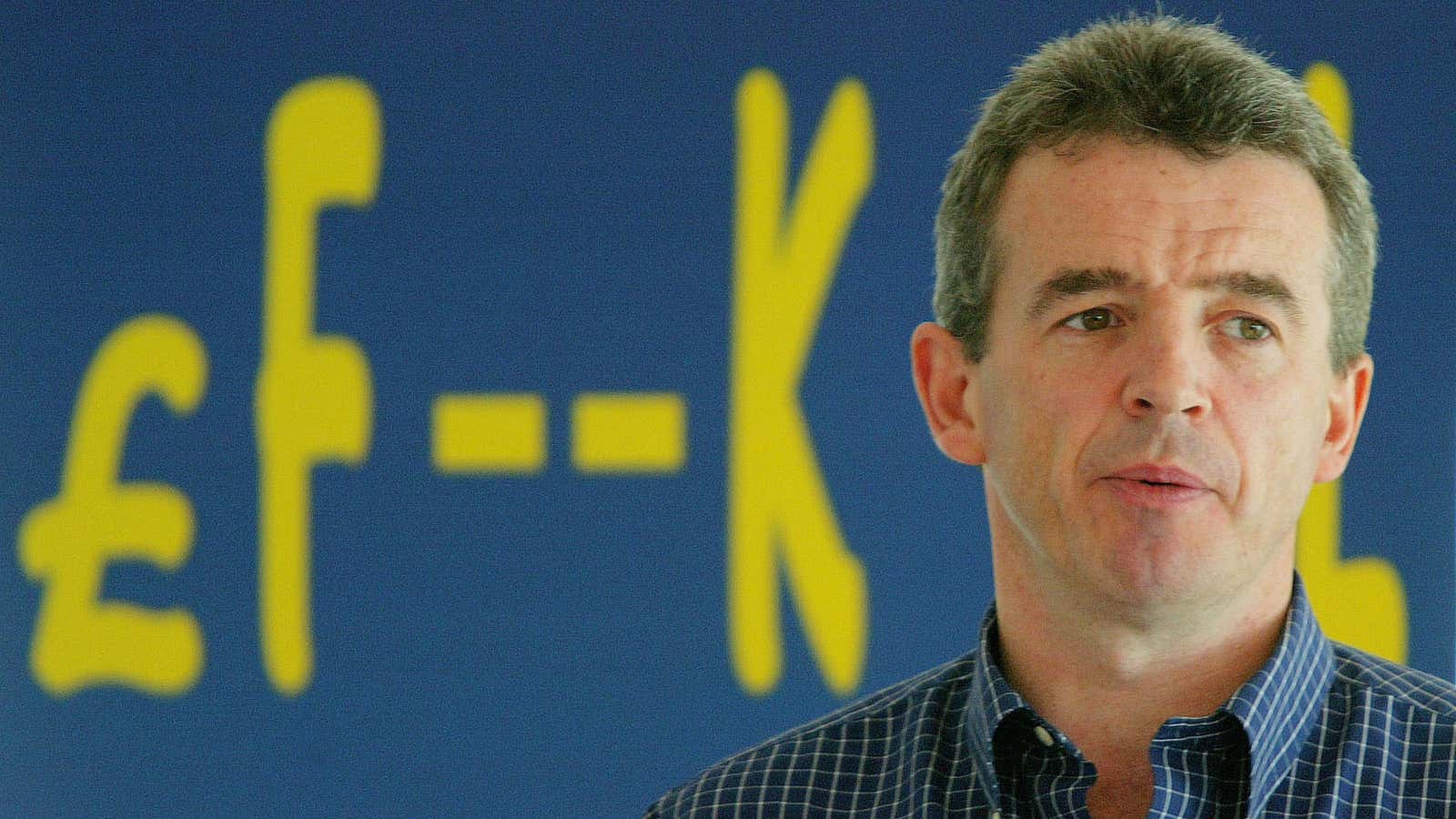Ryanair, the ultra-low-cost European airline, does things its own way. If it can offer the cheapest fares, it figures flyers will put up with bare-bones service in other areas. Ryanair rode this penny-pinching philosophy from its roots as a regional Irish carrier in 1985 to become Europe’s largest airline today.
But its combative image and brusque demeanor have come in for criticism recently, as falling profits have forced the airline, in CEO Michael O’Leary’s words, to “stop unnecessarily pissing people off.”
Today, the airline announced a major expansion of routes from Dublin and London. It is also expecting delivery of 175 new planes, worth more than $15 billion, over the next five years. To pay for all of this, Ryanair is considering a bond issue, its first not backed by an official export agency, which means it needs a credit rating.
That rating, by Standard & Poor’s, is BBB+, the airline announced today. This is a rare investment-grade rating for an airline and the highest among the world’s privately-owned carriers. But it could’ve be even higher.
The company’s underlying “anchor” rating is one notch higher than its official credit rating, S&P says. It was docked a notch in part due to the money tied up in its big aircraft order, as well as a relatively generous policy on dividends and share buybacks. Ryanair could also do more to attract higher-spending business travelers, the agency says.
And even in the buttoned-up world of credit ratings, Ryanair can’t escape its reputation for “pissing people off.” S&P notes that one of Ryanair’s negative risk factors is its “reputation for providing less customer-friendly services than some of its peers.” That’s about as harsh as you can get in the diplomatic, data-driven language of credit ratings. The short-haul airline already has one of the strongest balance sheets in the industry, but rising above its reputation for rudeness will require a much longer journey.
